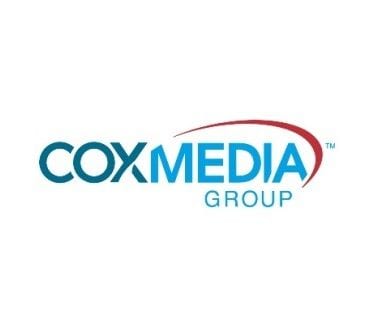By: Carter Wyckoff

Inside Radio
July 25, 2018
The trend of decoupling radio and TV assets got a new head of steam Tuesday with an announcement from Cox Enterprises that it’s exploring a sale, merger or partnership for its 14 television stations while continuing to hold on to its 61 radio stations. CBS and Scripps earlier decided to split up their radio and TV combos, although, unlike Cox, they opted to keep TV and sell radio.
For Cox, the decision is all about scale. The company said it determined its TV group “will need to be part of a larger entity to thrive in the future.” That’s certainly understandable in an era where Sinclair Broadcast Group’s contested $3.9 billion buyout of Tribune Media would produce the largest owner of local TV stations in the U.S. And as TV companies scramble to beef up their holdings after FCC chair Ajit Pai said he plans to loosen media ownership rules in response to a more competitive media landscape.
Several of the TV stations being put on the sale block operate in markets where Cox has radio clusters, such as Atlanta, Orlando, Dayton, Jacksonville and Tulsa. In Atlanta, there has been a strong synergy between WSB-TV (channel 2) and “News-Talk Radio” WSB (750). The TV station dominates the Atlanta TV market while the radio station is often top-rated.
In varying degrees, Cox has worked to unite its radio and TV stations under common leadership. Last September, as part of ongoing management convergence initiatives, the company appointed Cathy Gunther market VP for Tulsa, and Dan Lawrie market VP for the company’s Jacksonville properties. Both execs oversee each market’s radio and TV properties. In November Cox put all of its assets in Atlanta and Athens under common leadership, integrating radio, TV, newspaper and digital under four VPs.
A sale of its TV group would require unraveling those integrated markets. Or as CMG president Kim Guthrie put it in an internal memo obtained by Inside Radio, “TV represents a significant portion of our portfolio and there will likely be implications for the rest of CMG.”
Cox also owns or has interest in TV stations in Seattle, Boston, Charlotte, Pittsburgh and Memphis.
‘No Immediate Plans’ For Radio Division
The company says it has no immediate plans for the other parts of its Cox Media Group portfolio and will continue to operate its 61 radio stations, various newspapers and other assets.
“We didn’t take this decision lightly. It is clear that scale is critical for TV affiliates to be positioned well for the future. Our stations are some of the best in the industry and we want them to stay that way,” Cox Enterprises president & CEO Alex Taylor said in a news release.
In the internal memo, Guthrie said the decision was made after a “thorough analysis” of both the industry and the company’s portfolio over the past year. “Deregulation, new competitors, changing media habits, and a rapidly evolving landscape of mergers and acquisitions are prompting many media operators to consider new ways to compete,” Guthrie said. “Our analysis shows that scale is critical to be successful.” The 14 TV stations will need to be part of a larger entity to thrive in the future, she added, so they can deal with networks and distributors “from a position of strength” and drive digital growth. “This decision will likely mean that we will no longer solely control our existing TV portfolio.”
The company says it is in the early stages of the TV sale process and expects it to take six months to a year to complete.
However Cox says it has “no immediate plans for the other parts of the portfolio and will continue to operate our radio properties as well as The Atlanta Journal-Constitution, The Dayton Daily News and their affiliated publications and websites,” along with its other businesses like Cox Reps, Gamut, Videa and Ideabar.
Cox says the 14 stations in nine states are “leading news and information outlets and are cornerstones of the communities they serve” with strong financial performances that have made them “attractive assets in today’s marketplace.”
With tentacles that reach into communications, media and automotive services, Cox Enterprises has revenues of more than $20 billion and about 60,000 employees. The company got its start in Dayton, when founder James M. Cox started the Dayton Daily News.